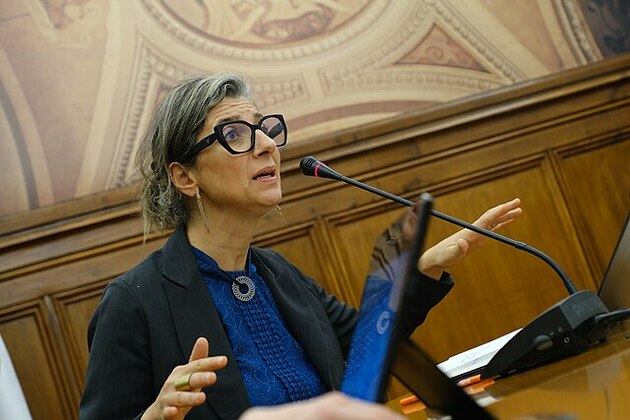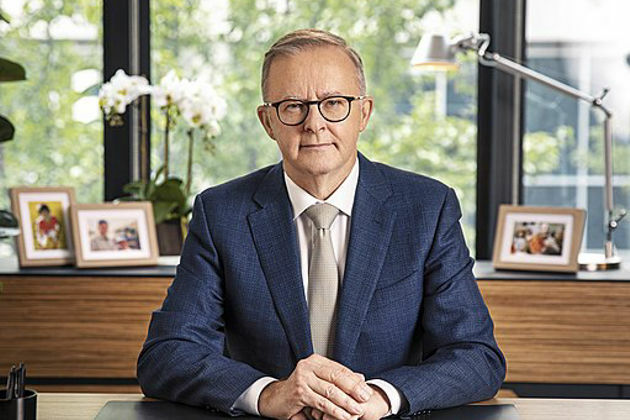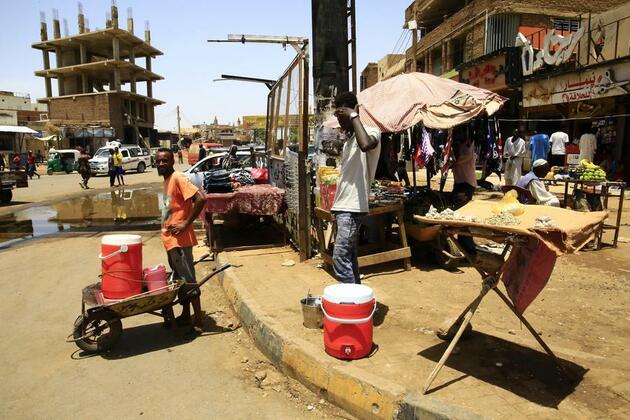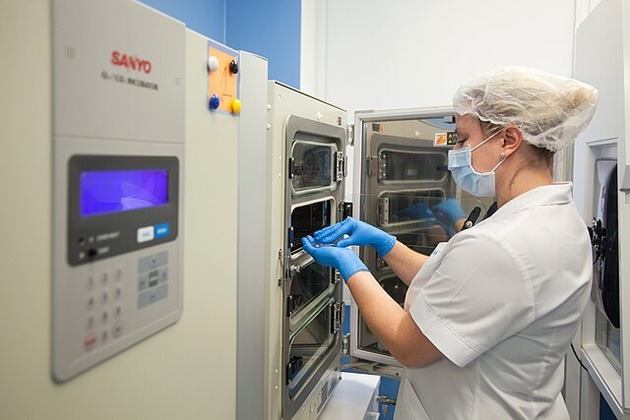Roundup: Australia's bid to meet global demand for sustainable jet fuel
Xinhua
25 Jun 2022, 07:19 GMT+10

SYDNEY, June 25 (Xinhua) -- As the global aviation industry pledges to meet 2030 and 2050 emissions targets, Australia is preparing to seize on what will be a growing global demand for Sustainable Aviation Fuel (SAF), a biofuel alternative to traditional jet fuel.
Last week, a major investment into sustainable aviation fuel (SAF) from Australia's national airline Qantas is the latest step of the company to tap into the growing market.
Qantas in partnership with Airbus announced a 200-million-U.S. dollar investment to "kickstart" Australia's burgeoning SAF biofuels industry.
"The use of SAF is increasing globally as governments and industry work together to find ways to decarbonize the aviation sector. Without swift action, Australia is at risk of being left behind," said Qantas CEO Alan Joyce alongside the announcement.
During the International Air Transport Association (IATA) 77th General meeting in 2021, the body and its airline members committed to achieving net-zero carbon emissions from their operations by 2050.
According to the pledge, reaching net zero emissions by 2050 would require 65 percent of all jet fuel to come from SAFs, about 449 billion liters. In 2021 there was only an estimated 100 million liters of SAFs produced globally -- just 0.02 percent of the 2050 target.
Both to reach these targets and to capitalize on what would be a massive global surge in demand for SAFs, companies and governments are also joining the push.
In May, oil and gas producer BP Australia announced the multi-billion-dollar conversion of one of its oil refinery sites in Western Australia to what could be Australia's first commercial scale production of SAFs.
Similarly in April, the government of the state of Queensland joined the SAF race after pledging 500 million Australian dollars (about 345 million U.S. dollars) to open a plant in the state, which as early as next year could produce over 350 million liters of SAF.
Logistics and transport expert from the University of Sydney, Prof. Rico Merkert, told Xinhua that Australia's move to SAFs over the last several years was a clear sign that governments and airlines are realizing that "the status quo is not going to be sufficient to get them to net zero."
"To combat global warming something needs to happen soon and in my view 10 percent SAF in 2030 is likely not going to be enough. That said, it is a starting point."
Biofuel researcher and lecturer in the University of Queensland's School of Earth and Environmental Sciences, Dr. Anthony Halog told Xinhua that Australia's newly elected Labor government's stronger stance on environmental issues was likely a contributing factor to Australia's increasing investment in SAFs and other biofuels.
"It looks like this government we have right now is more interested to advance the climate policy agenda of Australia, and I think Australia is really behind on all of this, it has to catch up," said Halog, noting that Australia was already about 5 years behind in the development of biofuel production compared to other major players such as Britain and the United States.
"If SAFs can be developed inland with a circular economy or a 'circular bio economy', I think that would be good for Australia."
Halog added that Australia's biofuel potential was heightened by the fact that it had ample land to farm materials, such as canola oil and other biomass feedstock, and establish renewable energy sources to power the biofuel plants.
Nonetheless, analysts stressed that SAF cannot solve the environmental problems of the aviation industry once and for all.
Merkert said in addition to the ramping up of SAF use, which is purported to reduce carbon emissions by up to 80 percent, airlines would need to invest in technologies such as electric aircraft for shorter flights and more efficient aircraft for long-haul flights.
He added that while biofuels did greatly reduce carbon emissions, they also released other harmful particulates including nitrogen oxides and sulfate aerosols.
Halog also called for a holistic approach to biofuel and SAF production, noting that the large-scale production of biofuels would have broader implications for the environment.
 Share
Share
 Tweet
Tweet
 Share
Share
 Flip
Flip
 Email
Email
Watch latest videos
Subscribe and Follow
Get a daily dose of Perth Herald news through our daily email, its complimentary and keeps you fully up to date with world and business news as well.
News RELEASES
Publish news of your business, community or sports group, personnel appointments, major event and more by submitting a news release to Perth Herald.
More InformationInternational Business
SectionOver 60 companies named in UN report on Israel-Gaza conflict
GENEVA, Switzerland: A new United Nations report alleges that dozens of global corporations are profiting from and helping sustain...
Persson family steps up H&M share purchases, sparks buyout talk
LONDON/STOCKHOLM: The Persson family is ramping up its investment in the H&M fashion empire, fueling renewed speculation about a potential...
Shell rejects claim of early merger talks with BP
LONDON, U.K.: British oil giant Shell has denied reports that it is in talks to acquire rival oil company BP. The Wall Street Journal...
Australian PM rejects US pressure to ease biosecurity rules
SYDNEY, Australia: Australia will not ease its strict biosecurity rules during trade talks with the United States, Prime Minister Anthony...
Beijing conference spotlights esports as new engine of digital economy
BEIJING, July 5 (Xinhua) -- No dull rows of chairs and tables, no endless slides of charts and numbers -- instead, a gleaming statue...
Sudan's Khartoum strives to recover amid ongoing civil war
KHARTOUM, July 5 (Xinhua) -- After more than two years of devastating conflict, Sudan's capital Khartoum is slowly emerging from the...
Australia
SectionUN Demands End to Myanmar Violence as Junta’s Election Plans Risk Further Instability
Nearly three months after a devastating earthquake struck Myanmar, the country remains trapped in a deepening crisis, compounded by...
Fresh IVF error raises alarm over clinic safety and oversight
MELBOURNE, Australia: A second embryo mix-up in just two months has pushed one of Australia's largest IVF providers back into the spotlight,...
Australian PM rejects US pressure to ease biosecurity rules
SYDNEY, Australia: Australia will not ease its strict biosecurity rules during trade talks with the United States, Prime Minister Anthony...
Numbers etched in history: A deep look into Gill's historic Birmingham outing with the bat
Birmingham [UK], July 5 (ANI): Indian skipper Shubman Gill concluded a record-breaking Birmingham Test against England with breathtaking...
"Arey bhai kal ya parso hi toh story daaali thi": Indian stars express awe, ridiculousness at Gill's monstrous run in England
Birmingham [UK], July 5 (ANI): The Indian cricketing fraternity expressed happiness as skipper Shubman Gill continued his monumental...
League of Legends: Gill surpasses Gavaskar, Virat, joins Lara, Sangakkara, Gooch following historic double-ton, century combo at Birmingham
Birmingham [UK], July 5 (ANI): Indian skipper Shubman Gill's dreamy, record-breaking continued to tire out bowlers and statisticians...












